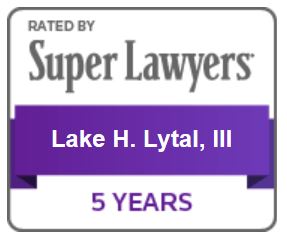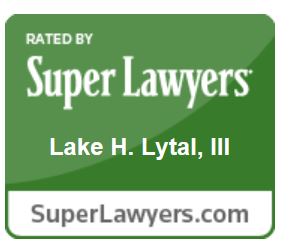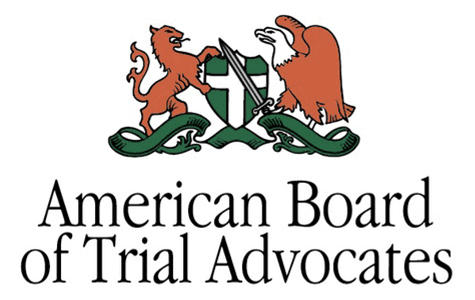Many car accidents can be dealt with simply, as the reporting officer to the scene will identify the at-fault party and issue a ticket. However, other accidents are more complicated and the police officer may not issue a ticket to either party. This is based largely on their own interpretation of the accident. If you are in car accident where no one gets ticketed, contact a lawyer as soon as you can.
A ticket from a police officer may seem to determine fault, but it is important to remember that this is not the case. You may cite that officer’s testimony and police report from the scene, but the ticket can not be used as evidence.
Hire an expert car accident lawyer to help determine fault without the presence of a traffic ticket.
Car Accidents Where No One Gets Ticketed
Here are common facts and questions concerning accidents where no driver gets ticketed. Review this information before calling to schedule your risk-free consultation with an experienced attorney.
Determining Fault in a Car Accident
In a car accident where no one gets ticketed, one party is typically more at fault than the other. While in many cases both drivers are partially to blame for the accident, one usually bears the greater responsibility.
It is vital to prove who is at fault for a car accident so that the victim can file a claim for damages against this party. The law protects the victim by ensuring that they are not financially responsible for injuries that they did not cause themselves. This is why the defendant is forced to pay financially to recover the expenses paid for the plaintiff.
Traffic tickets are not a clear determination of fault. Instead, you will need to prove fault by collecting evidence of negligent behavior. This can include an examination of auto parts to determine if there is a malfunction, getting witness statements, and investigating the other driver(s).
When can someone get a ticket during a traffic accident?
It is legally required to call police officers to the scene of any accident with more than $500 worth of damage. This essentially means that a police officer must be called to the scene of any car accident.
When they arrive, they will first secure the scene, then begin an investigation. Their investigation will include interviewing all of the drivers and witnesses present. They will examine the scene to determine if there were any additional factors at play that may have caused the accident. This includes speed limits, inclement weather, poorly maintained roadways, intoxicated driving, and vehicle malfunctions.
Police officers will only issue a ticket if a traffic violation has occurred. For example, if one party was speeding or tailgating too close to the other vehicle, they can be given a ticket for reckless driving. Any driving determined to be reckless, impaired, or distracted can result in receiving a ticket. In some cases, both parties may be issued a ticket.
The issuance of a traffic ticket is based on the officer’s judgment of the situation. In a car accident where no one gets ticketed, private investigations may be needed. One or both motorists may be at fault but may not receive a traffic ticket indicating their violation. If an officer does not ticket a driver that you believe to be at fault, hire a local car accident lawyer to help you prove their negligence and seek damages.
Why No Motorist Was Issued a Ticket
A police officer may determine that there is no need for a traffic ticket. It may feel confusing if you understand one party to be negligent for the accident.
However, police only issue tickets if traffic laws are broken. They cannot issue a ticket to a manufacturer who provided a faulty part or a car that slid on ice.
Although an individual or entity may be responsible for the accident, if they did not violate local traffic laws, they will not be issued a traffic ticket.
How can a traffic ticket affect a car accident case?
Traffic tickets can assist a motorist in negotiations with insurance companies. A traffic violation shows the insurance company that there is proof of fault. While it cannot be taken to court, it can be used to pressure them to settle.
Insurance companies are well known for using every trick in the book to settle for less than victims deserve. Having concrete evidence of their client’s wrongdoing and negligence will work in your favor. Your expert attorney will be able to use this ticket to enhance their evidence of the defendant’s negligence, thus forcing the insurance company to acknowledge the negligent behavior.
How do you prove fault without a ticket?
Traffic tickets are not an indication of fault. In fact, they cannot be used as evidence in court when attempting to prove negligence in order to be awarded compensation. Thus, if no motorist was issued a ticket, it actually doesn’t affect the personal injury claim in court.
Your attorney will proceed with their own investigations to determine fault and prove negligence. This involved collecting evidence, interviewing witnesses, and getting expert testimony. In some cases, the police officer who filed the report may be asked to testify, during which time their report with indications of fault can be used to further the plaintiff’s case.
However, it is not the ticket that determines fault. If you’ve been in car accident where no one gets ticketed, call one of our excellent lawyers. Fault is determined by the independent investigations of your legal representative.
Filing an Injury Claim with No Ticket
Lytal, Reiter, Smith, Ivey & Fronrath have over 250 years of combined experience defending individuals’ rights in car accident cases. We understand how much a car accident can impact your life and want to ensure that you get back on your feet as soon as possible.
Call our expert West Palm Beach car accident lawyers today if you have medical bills, lost wages, pain and suffering, and ongoing expenses as a result of an accident with another vehicle. Call (561) 867-4117 to schedule a free, no-obligation consultation with one of our experts. We can help you get on the path to recovering your damages.












